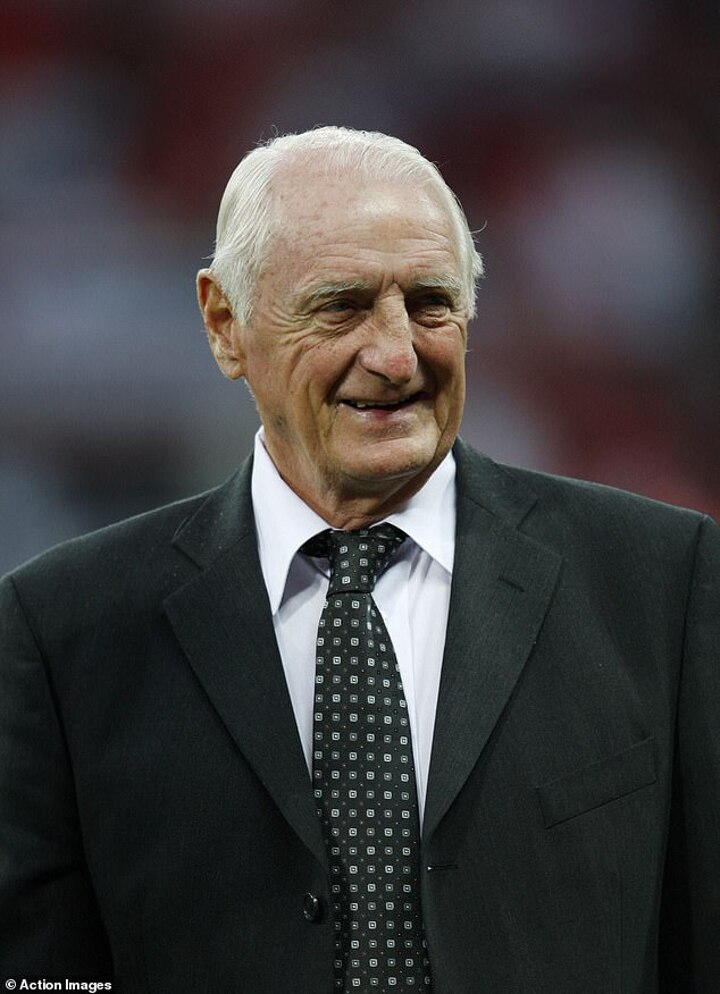George Eastham, a member of England's 1966 World Cup-winning squad, has died aged 88.
The Blackpool-born winger did not feature in his country's only major tournament victory, but he was part of Sir Alf Ramsey's side that triumphed on home soil 58 years ago.
Eastham spent most of his career at Newcastle, Arsenal and Stoke City. He had a far-reaching impact off the field, helping to improve players' freedom to move between clubs during a landmark 1963 court case in which he was involved.
A statement from the FA on Saturday morning said: 'We are saddened to hear that George Eastham OBE has passed away at the age of 88. George won 19 caps in his Three Lions career and was a member of our 1966 World Cup winning club squad.
“Our condolences go to George's family and friends.”
After breaking through as a youngster at Ards in Northern Ireland, Eastham made 124 and 207 league appearances for Newcastle and Arsenal respectively before moving to the Potteries.
There Eastham played 194 league matches and was awarded an OBE for his services to football shortly before retiring in 1974.
“The Stoke City Football Club family is deeply saddened by the passing of club legend George Eastham OBE at the age of 88,” his former club said in announcing his passing on their official website.
'George was signed by the Potters for a fee of £35,000 shortly after becoming part of England's 1966 World Cup-winning squad.
'He went on to represent the club in the top division of English football for eight seasons and was twice an FA Cup semi-finalist in red and white.
'He is perhaps best remembered as the man whose goal secured the 1972 League Cup in a 2-1 win over Chelsea at Wembley.
'The Potters will wear black armbands as a mark of respect during the match against Sheffield Wednesday (Saturday).
“Our thoughts are with George's family and friends at this difficult time.”
Eastham was then appointed assistant to Tony Waddington before becoming Stoke manager himself between March 1977 and January 1978. He would later emigrate to South Africa, where he coached football and became an outspoken opponent of apartheid.
